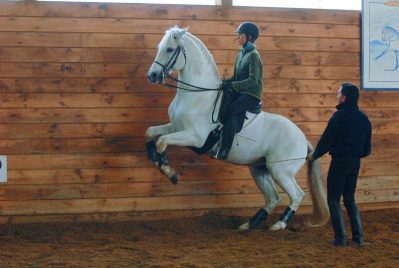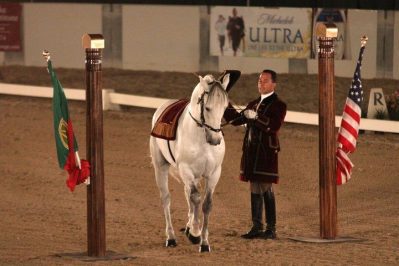Of History, Horses and Dressage
The Ancient Greeks were the first to leave records about anything like the art of dressage. Almost 2,500 years ago Xenophon wrote a treatise about how to teach horses and riders to do movements very similar to those we practice today. Somewhat surprisingly the techniques he suggests were almost as gentle as those of modern trainers like Linda Tellington-Jones and not at all like the brutal methods often used by people in ancient times as well as in many parts of the world today. No doubt he had an influence on the Renaissance aristocrats who refined the sport and added to the art.

Imagine war heroes of old rearing their steeds in battle! All photos from the New England dressage program.
In this day of aircraft and tanks it is hard to realize that not so long ago the horse played an often determining role in the course of battles. Well trained horses and riders could turn the balance so dressage was much more than a sport in those days. Movements like the levade, leaping, kicking and rearing could be tremendously useful in a battle at close quarters. The capriole, where the horse kicked out with great power front and back must have been a particularly devastating maneuver to surrounding foot soldiers. The psychological effect of a horse on opposing foot soldiers was also important. The Aztecs were certainly terrified by Cortez’s cavalry and European soldiers were far from immune to the same kind of panic.
Dressage training was not only useful for warfare, it also helped horse and rider in equestrian sports like hunting, racing and bullfighting. Like so many events in modern rodeo, the movements in competition developed from very practical needs. Iberian horses like Andalusians and Lusitanos were excellent for this purpose. It is interesting that classical dressage and classical Western Riding have a great deal in common given that they both come from the same Spanish roots. You will find that a week of challenging riding can also be a very enjoyable vacation, providing an interesting glimpse of another culture and an opportunity to meet new friends.


